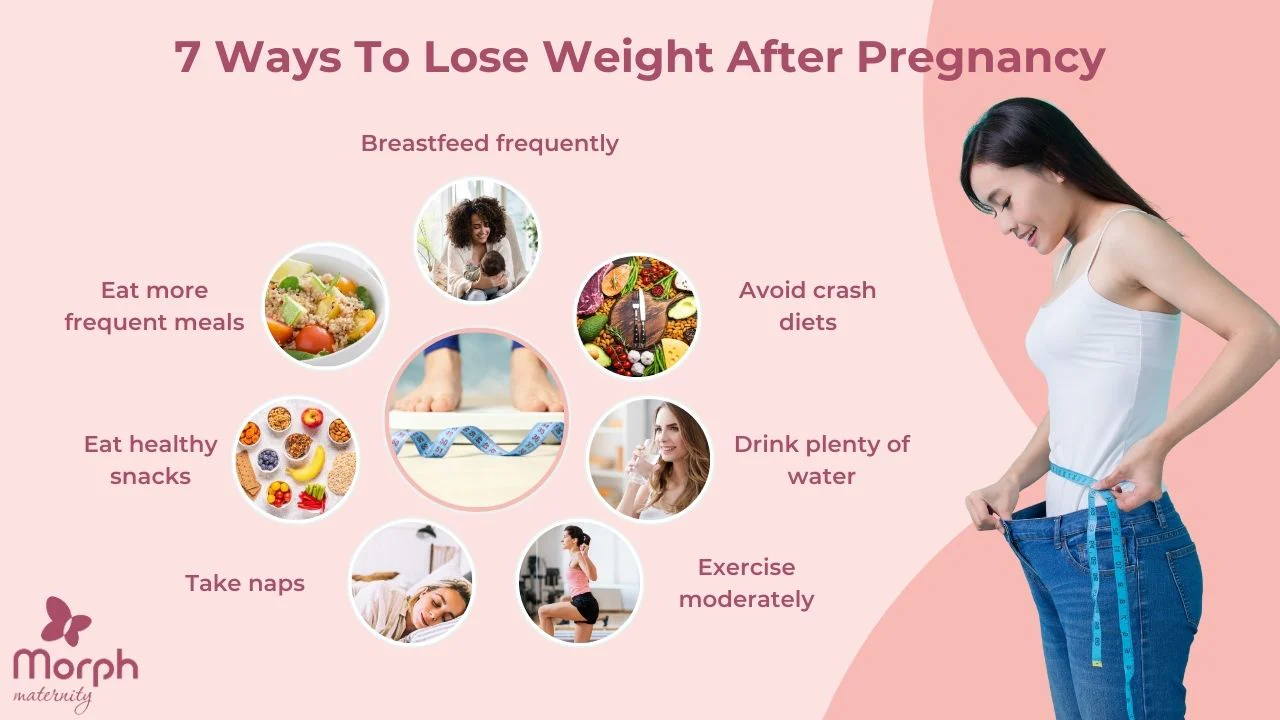
The journey of motherhood brings many joys, but it also comes with significant physical changes, including weight gain during pregnancy. For many new mothers, the desire to return to their pre-pregnancy weight can create added pressure. However, postpartum weight loss is a unique journey filled with challenges and considerations that require understanding and patience. In this blog post, we will explore what new mothers can expect when it comes to weight loss after pregnancy.
1. Understanding Postpartum Weight Changes
Immediate Weight Loss
In the first few weeks after giving birth, new mothers typically experience an initial weight loss due to the delivery of the baby, placenta, and amniotic fluid. On average, this can amount to 10-15 pounds. However, the majority of weight gained during pregnancy may take longer to shed.
Hormonal Changes
Postpartum hormonal fluctuations can impact weight loss efforts. For instance, the hormone prolactin, which supports breastfeeding, may influence appetite and metabolism. Additionally, hormonal changes can affect how and where the body stores fat.
2. Unique Challenges for New Mothers
Lack of Sleep
Caring for a newborn often leads to sleep deprivation, which can affect metabolism and increase cravings for unhealthy foods. Studies have shown that inadequate sleep can make it harder to lose weight and may lead to weight gain.
Time Constraints
New mothers may struggle to find time for exercise and meal preparation. Balancing baby care, household responsibilities, and personal well-being can leave little room for a structured weight loss plan.
Emotional Well-being
Postpartum emotions can include joy, stress, anxiety, and even postpartum depression. These feelings can affect motivation and may lead to emotional eating or unhealthy food choices.
3. Considerations for Safe Weight Loss
Consult a Healthcare Provider
Before starting any weight loss program, it’s essential for new mothers to consult with their healthcare provider. They can provide guidance on safe weight loss practices, especially for those who have had a cesarean section or other complications.
Focus on Gradual Weight Loss
Aim for a gradual weight loss of about 1-2 pounds per week. Rapid weight loss can be unhealthy and may affect milk supply if breastfeeding. Remember that it took nine months to gain the weight, and it may take just as long to lose it.
4. Healthy Eating Habits
Prioritize Nutrient-Dense Foods
Focusing on whole, nutrient-rich foods can support both weight loss and overall health. Include plenty of:
- Fruits and Vegetables: Packed with vitamins and minerals, they help keep you full.
- Whole Grains: Opt for brown rice, quinoa, and whole-grain bread for sustained energy.
- Lean Proteins: Sources like chicken, fish, beans, and legumes help with recovery and satiety.
Stay Hydrated
Drinking enough water is crucial for overall health, especially for breastfeeding mothers. Staying hydrated can also help control hunger and support metabolic processes.
5. Incorporating Physical Activity
Start Slowly
Once cleared by a healthcare provider, new mothers can gradually incorporate physical activity into their routine. Start with gentle activities such as walking or postpartum yoga, and listen to your body’s signals.
Focus on Strength Training
Incorporating strength training can help rebuild muscle mass, which may have been lost during pregnancy. Building muscle can increase metabolism and support weight loss.
Make It a Family Affair
Involve your baby in physical activity by going for walks in a stroller or doing exercises at home during nap times. This can make exercise more enjoyable and manageable.
6. Seek Support and Connection
Join a Support Group
Connecting with other new mothers can provide emotional support and accountability. Consider joining a postpartum fitness class or a weight loss support group to share experiences and challenges.
Communicate with Your Partner
Discuss your weight loss goals with your partner. Having their support can make it easier to stay on track and make healthier choices as a family.
7. Be Kind to Yourself
Set Realistic Goals
Focus on health rather than just the number on the scale. Celebrate small achievements and progress, whether it’s fitting into an old pair of jeans or having more energy to play with your baby.
Embrace Your New Body
Accepting the changes in your body post-pregnancy can be empowering. Remember that your body has accomplished an incredible feat, and it may take time to adjust.
Conclusion
Weight loss after pregnancy is a personal journey that varies for each woman. Understanding the unique challenges and considerations new mothers face can help create a more compassionate and realistic approach to postpartum weight loss. By focusing on healthy eating, gradual weight loss, and incorporating physical activity, new mothers can navigate this transition with confidence and grace.
Call to Action
If you’re a new mother looking to lose weight, remember that it’s a journey that requires patience and self-compassion. Prioritize your health and well-being, and seek support when needed. With the right mindset and strategies, you can achieve your weight loss goals while embracing motherhood.

